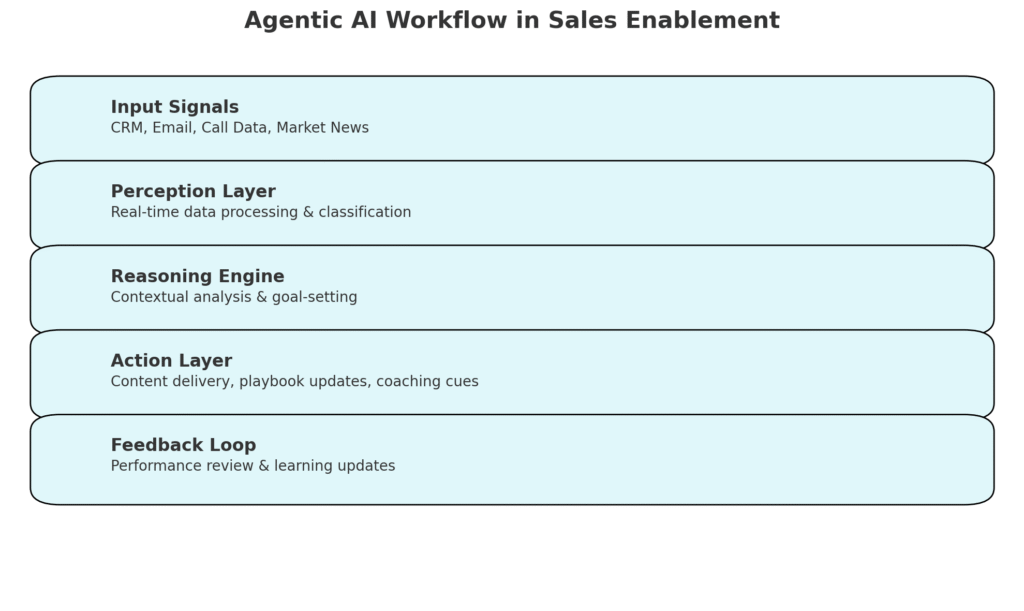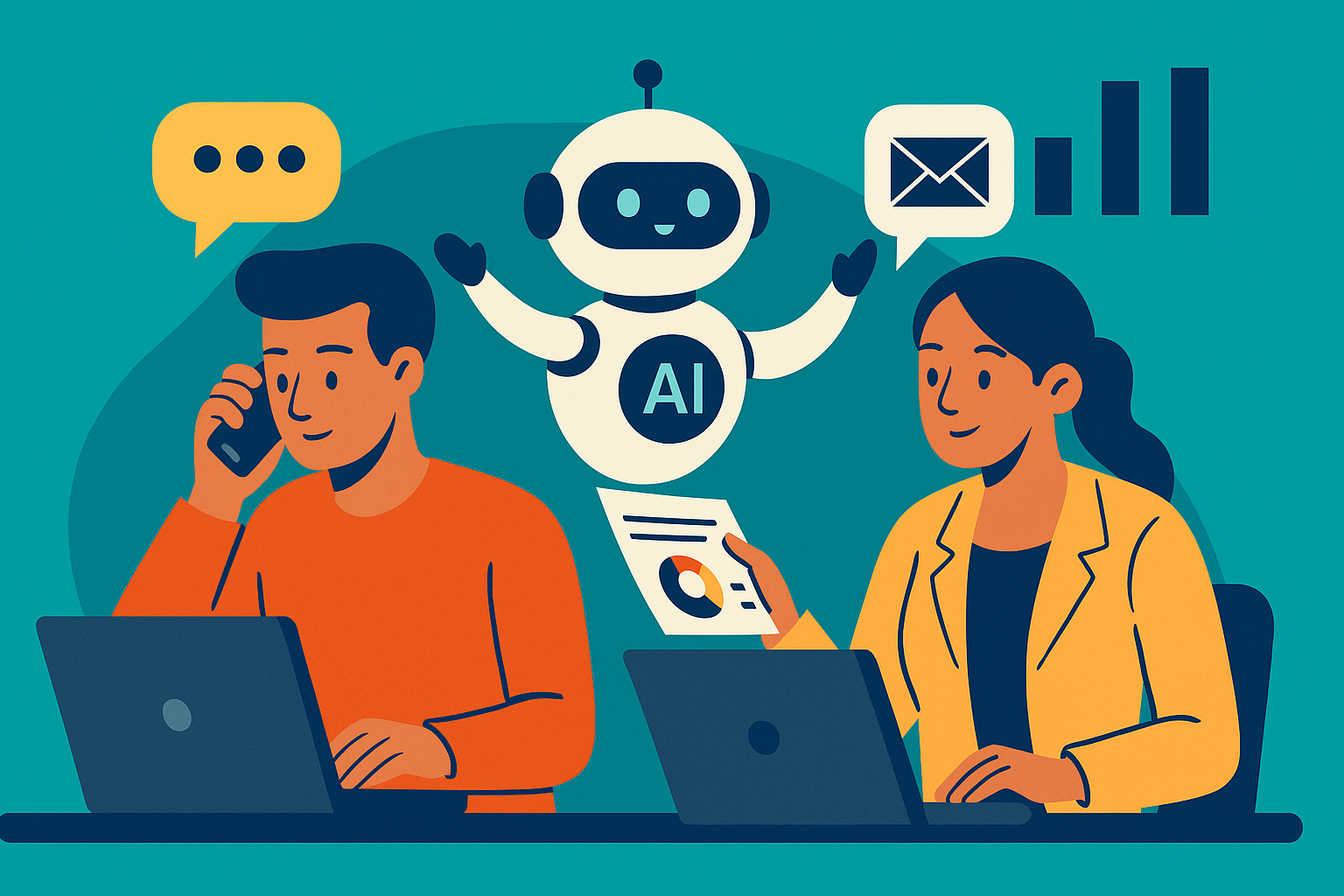How Agentic AI Is Transforming Sales Enablement in 2025

Sales enablement is quietly being reinvented by AI that doesn’t just respond, but thinks, plans, and acts.
In 2025, forward-thinking organizations are shifting from passive AI tools to Agentic AI: self-directed systems that observe, reason, and take action to support reps at every stage of the sales cycle. According to McKinsey’s 2025 report:
Agentic AI is ushering in a new era where digital workers not only assist humans but autonomously plan, reason, and act in complex workflows—including sales.”
— McKinsey & Company, “Seizing the Agentic AI Advantage,” June 2025
This evolution isn’t theoretical. Companies already deploying Agentic AI are seeing:
-
Up to 30% faster sales cycles
-
19% higher conversion rates
-
Greater rep productivity and engagement
What Is Agentic AI—and Why Is It Taking Off in Sales?
From Reactive to Proactive Intelligence
Most sales tools are reactive: they wait for human input, then respond with pre-programmed logic. Agentic AI flips that model. It can:
-
Set goals autonomously
-
Analyze real-time data streams
-
Adapt continuously without needing prompts
In short, it functions as a digital colleague—not just a tool.
Why Now?
The complexity of modern B2B sales—especially in SaaS, tech, and enterprise segments—requires constant decision-making. Agentic AI is gaining traction because it:
-
Reduces rep cognitive load by handling prep, research, and recommendations
-
Acts faster than humans on shifting buyer signals
-
Keeps messaging and content aligned to context
Example: If demo attendance rates drop, an AI agent might:
-
Detect the trend automatically
-
Adjust email sequences on its own
-
Notify the account executive with coaching suggestions
All without human intervention.
3 Ways Agentic AI Is Supercharging Sales Enablement
1. Real-Time Coaching in Every Call
AI agents now act like digital enablement partners. They offer:
-
Instant analysis of sales calls
-
Objection-handling suggestions tailored to persona + conversation history
-
Language improvement cues based on top-performing reps
Tools like Salesforce’s Agentforce, Refract, and Revenue.io are leading the charge.
2. Dynamic Playbook Adaptation
Static PDFs are over. Agentic systems now:
-
Monitor pipeline stages
-
Scan for competitor signals and market shifts
-
Dynamically guide reps toward optimal actions
Your playbook evolves in real time—not quarterly.
3. Intelligent Content Delivery
No more content overload. Agentic AI delivers:
-
The right asset
-
At the right time
-
With performance metrics tied to outcomes
This moves sales enablement from “give them access” to “deliver strategic value.”
Bold takeaway: Enablement is no longer a library. It’s a real-time intelligence system.
How to Integrate Agentic AI Into Your Sales Organization
✅ 5-Step Starter Framework
-
Audit your tech stack: What’s manual, slow, or reactive today?
-
Identify use cases: Start with repetitive tasks like call analysis, email follow-ups, or content delivery.
-
Select Agentic AI tools: Prioritize systems that can set goals, take action, and learn over time (e.g., SalesGPT, 1up.ai, AgentExchange).
-
Run a pilot with your most adaptable sales pod.
-
Evaluate outcomes with both AI analytics and rep feedback.
Common Mistakes to Avoid
-
Over-notifying reps (AI fatigue is real)
-
Relying too heavily on automation without human enablement leadership
-
Choosing “black box” AI with no transparency or explainability
Remember: Agentic AI is a partner, not a replacement.
Real-World Results: What’s Already Happening
-
Companies using agentic AI tools report 125% lift in conversion, 650% ROI in year one, and faster onboarding for new reps (SuperAGI 2025 Case Study).
-
A Fortune 100 tech company using agentic workflows saw a 43% increase in mid-call win rates by using reinforcement-learning agents for call coaching (arxiv.org).
Final Takeaway
Agentic AI isn’t just improving sales enablement—it’s redefining it.
It creates a feedback loop where content, coaching, and strategy all update themselves. Reps spend more time in front of customers—and less time searching for answers.
“Think faster. Act smarter. Close bigger. That’s the Agentic AI advantage.”

